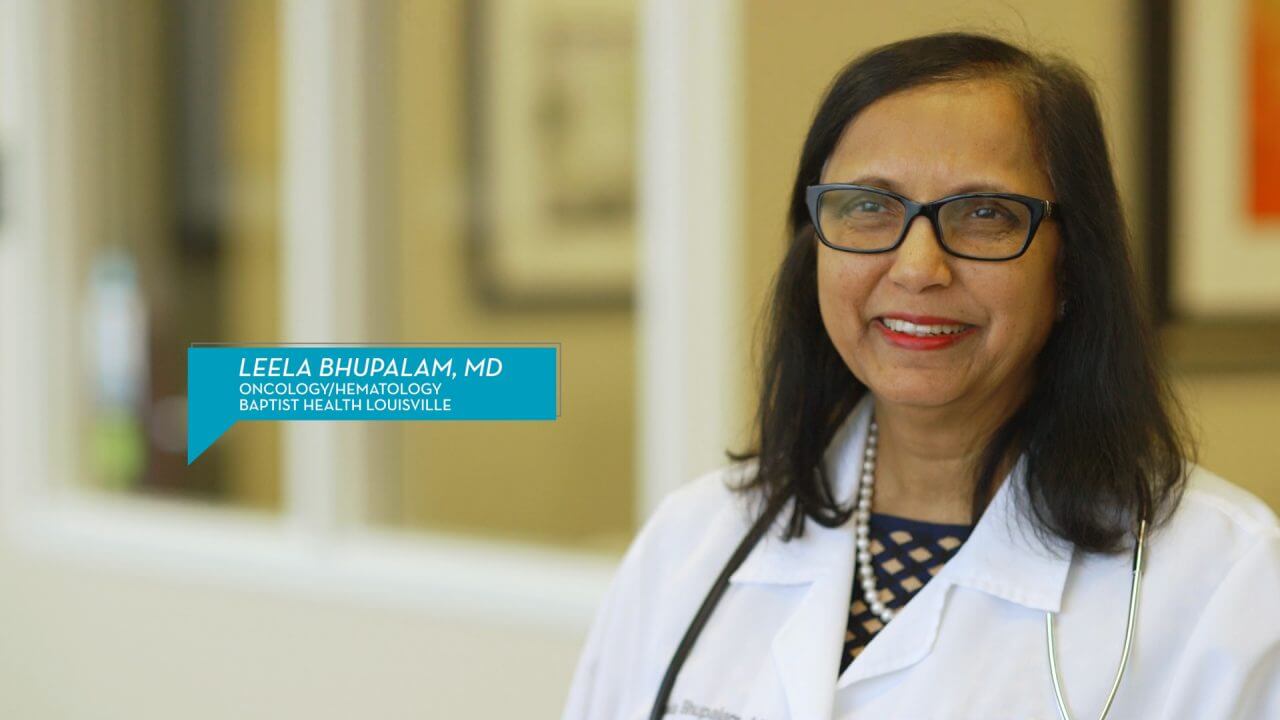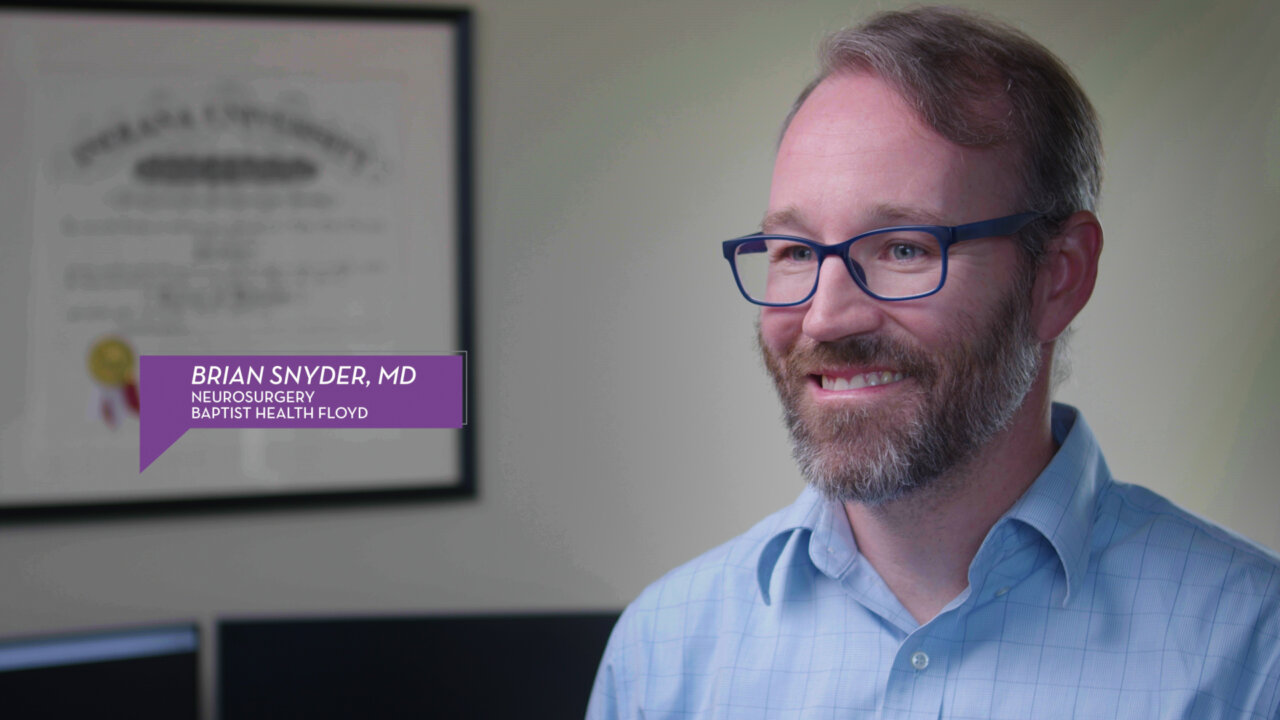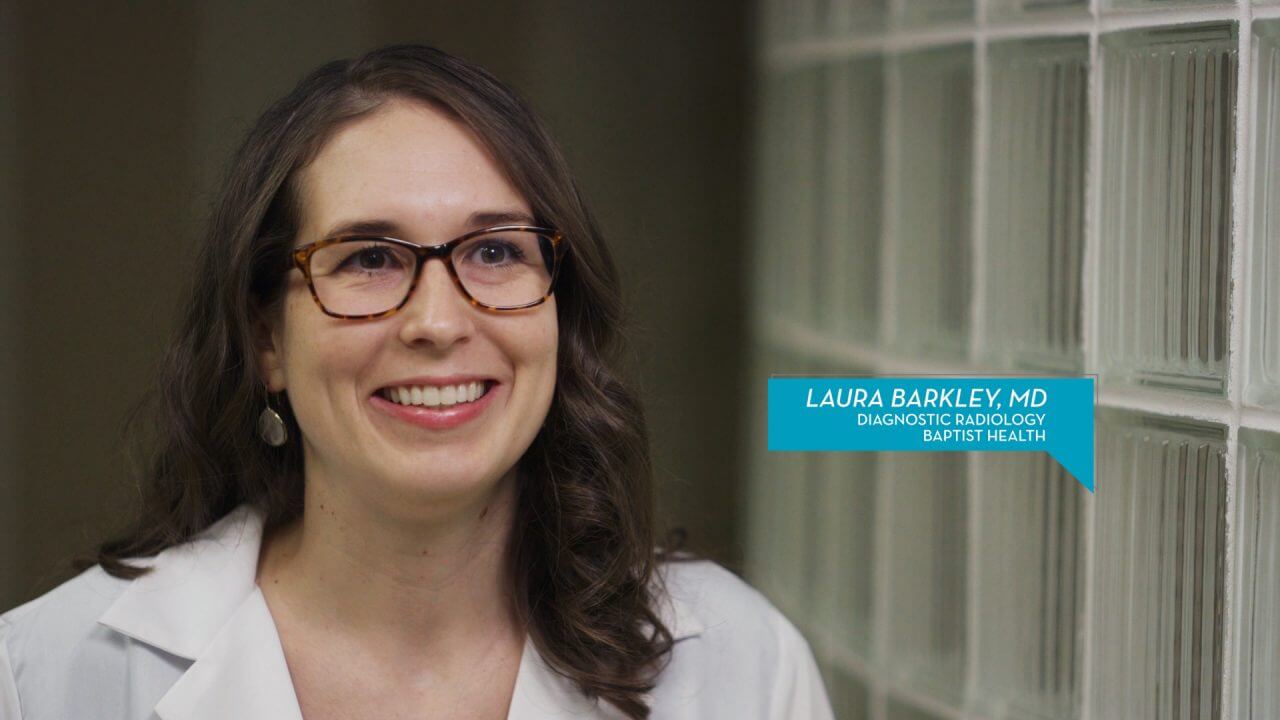Increasing Brain Cancer Survival in Louisville
Baptist Health Louisville: Increasing Brain Cancer Survival
Baptist Health Louisville has a special Neuro-oncology department that specializes in advanced brain cancer treatment. Learn more about our department and how some patients are prolonging their lives up to 15 additional years.
Increasing Brain Cancer Survival HealthTalks Transcript
Ali Choucair, MD
Neuro-oncology is a field of medicine that deals with the treatment and management of cancers that affect the nervous system. We focus on what we call primary brain tumors. These are tumors that arise within the brain, the spinal cord, and the peripheral nerves. Neurosurgeons try to take out as much of the tumor as possible.
When the tumor comes out, it is sent for pathology. Nowadays, we look at how the tumor looks under the microscope. We try to see what the behavior of the tumor is — what are the drivers behind the tumor? The molecular profile helps us design the next stage of treatment. Now, instead of having 300 patients all treated the same, we probably have out of those 300, 150 patients treated differently. That is really been a big, big change in terms of treatment. That’s what has led to improvement and survival.
When I went to medical school, to see a [patient with a] grade 3 astrocytoma living five or six years was a miracle. Nowadays, some of them are living 14 and 15 years. Specific molecular profile, when adopted and treated, can lead to prolonged survival of these patients.



